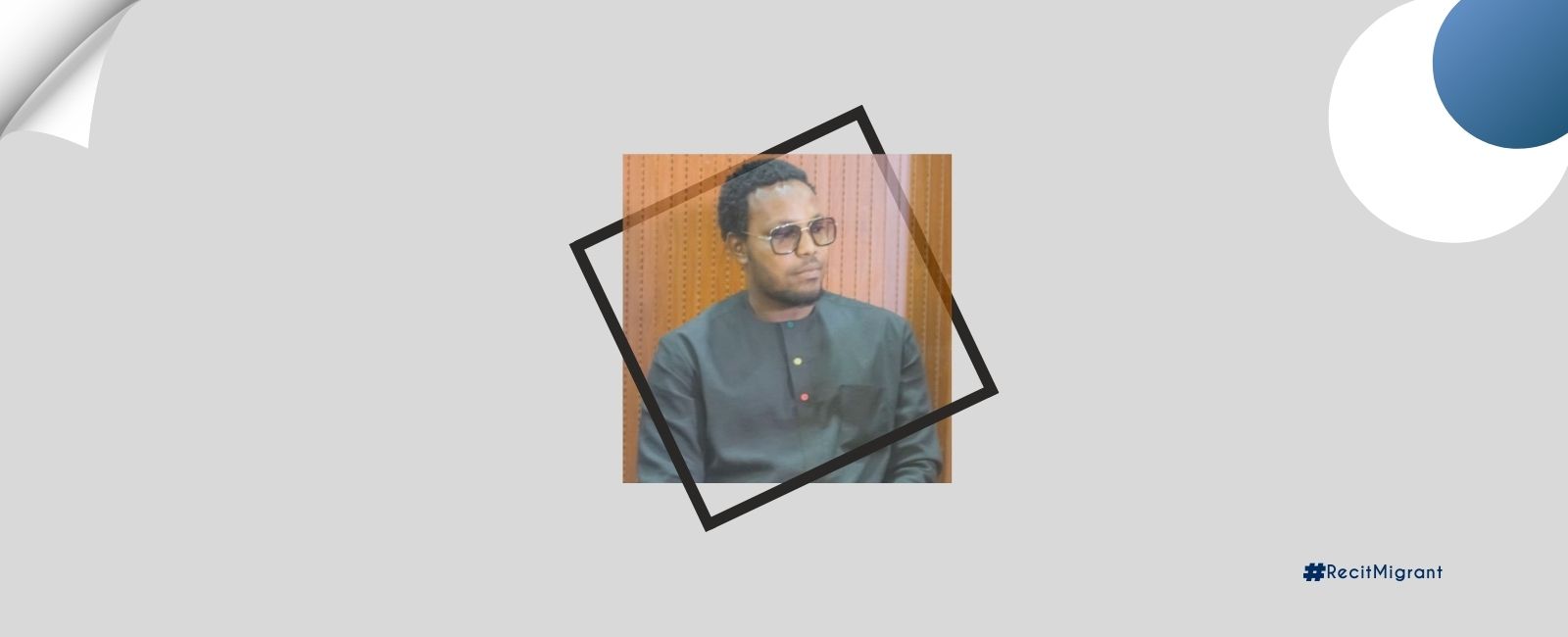

Cheikh Abdou Fall is the coordinator of the Association of Returnee Migrants for Reintegration and Development (CM2RD) in Senegal. In this interview with Dialogue Migration, Mr. Fall, who lives in Pikine, Dakar suburbs shares his insights on key issues surrounding migration.
Kindly present CM2RD and outline the specific initiatives your organization undertakes to combat irregular migration?
First, let me tell you about our association, which was founded during a general assembly in July 2023. Our mission is to support returnee and prospective migrants through social reintegration, vocational training and psychological assistance. To combat irregular migration, we focus on organising caravans across the country to engage directly with young people, the group most affected by this global issue. We also conduct awareness campaigns through various media channels, including television and radio. Our aim is to inform, raise awareness and dissuade as many people as possible from taking dangerous sea or land routes to reach Europe or the United States.
The issue of visa grants is drawing growing attention. What is your perspective on it?
In order to combat illegal immigration more effectively, visa procedures should be simplified. Obtaining this essential document is becoming increasingly difficult for applicants. We can no longer avoid this debate. Even if our countries lack the leverage to impose visa reciprocity on Western nations, it is now more urgent than ever to introduce measures that enable Africans to travel legally.
Awareness campaigns against this scourge are ongoing, but are they actually having an impact?
It’s difficult to say, but they are sometimes the only tool we have. If we cannot create opportunities for our fellow citizens to thrive in their own countries, we must at least try to dissuade them from taking dangerous paths by any means necessary. We need effective tools to accurately measure the impact of these campaigns. In the meantime, however, we must continue our efforts.
Despite the risks, an increasing number of Africans are attempting to reach Europe by sea or land. How does this make you feel?
It demonstrates the devastating impact that unemployment and poverty continue to have on our beloved continent. Young Africans are frustrated by poor governance, corruption and a lack of genuine opportunities. This is partly because some African leaders have not done enough. While responsibility is shared, it must also be acknowledged that certain leaders inadvertently encourage irregular migration through their actions.
So, how can we persuade people considering irregular migration to stay at home and avoid the risks of the journey?
In order to dissuade people from attempting illegal migration, we must first create conditions that enable them to thrive at home. We can organise discussions, panels and seminars on the subject, but without real action, people of all ages will continue to take these dangerous paths. I am not dismissing the value of campaigns to raise awareness, which we actively pursue ourselves, but these are only part of the solution. In short, if we want to protect our fellow citizens from these perilous journeys, we must continue with our awareness-raising efforts, but above all, we must tackle unemployment.
Do you collaborate with other associations that combat irregular migration? How do you manage to work together?Yes, we actively seek partnerships with organisations such as the NGOs Jamra,BOZA-FI, IRFC and ONFP, to name a few. Working with these sister organisations is straightforward because we all share the same goal of supporting, training and reintegrating returnee migrants. These partnerships also help to raise awareness. Combating irregular migration is a collective responsibility and we can only successfully tackle the challenges posed by this issue by pooling our resources and efforts across all areas.
Recently Published
Subscribe to our newsletter!
Quick Links


